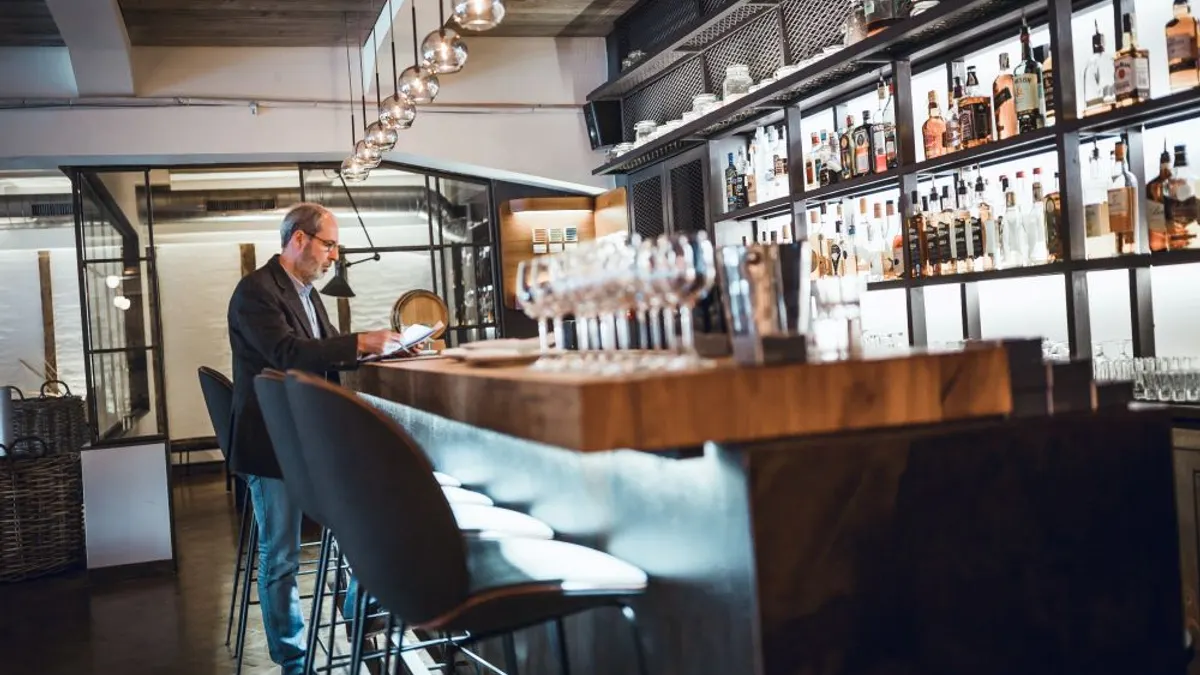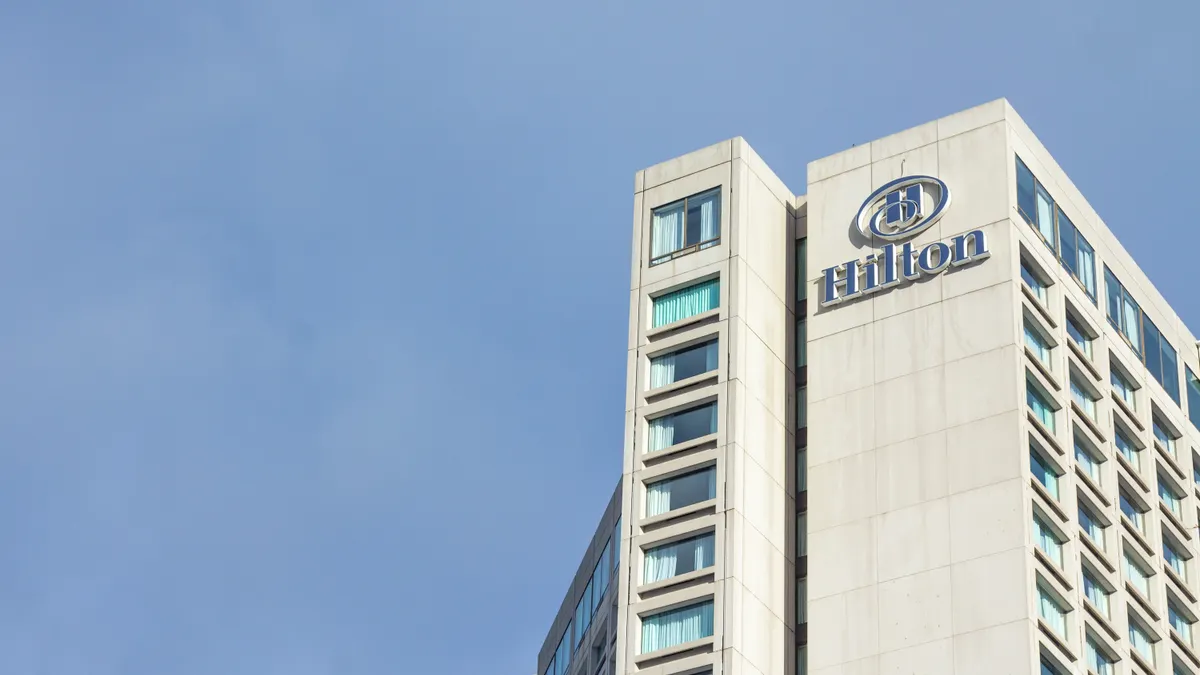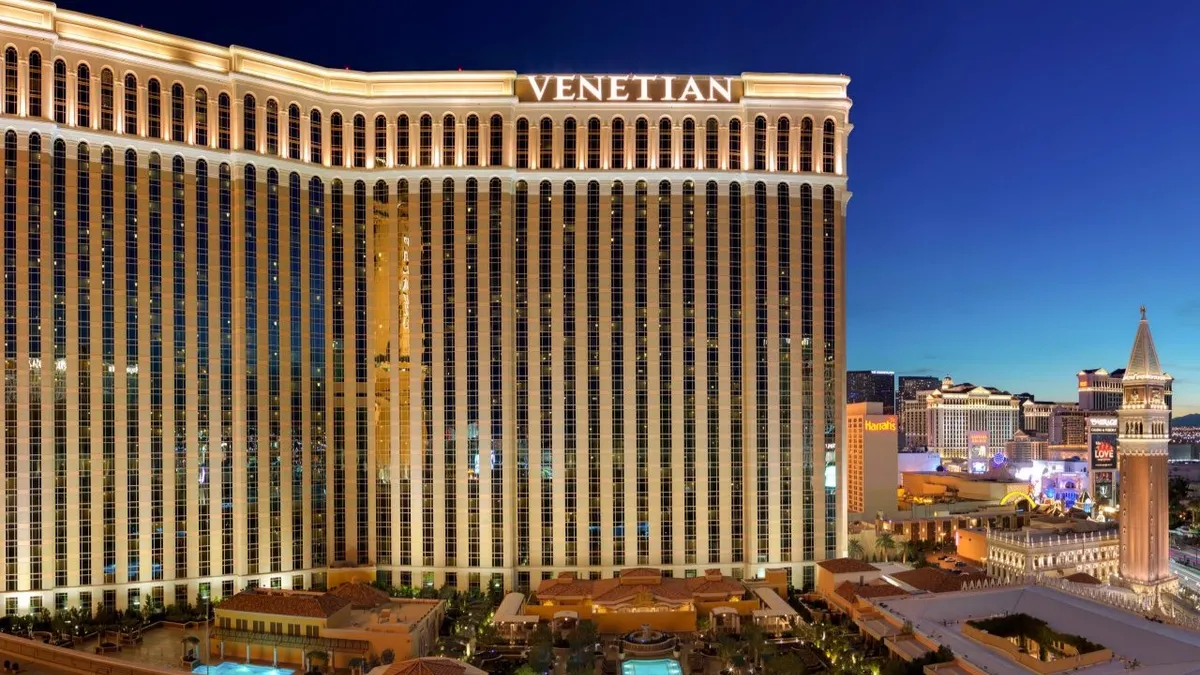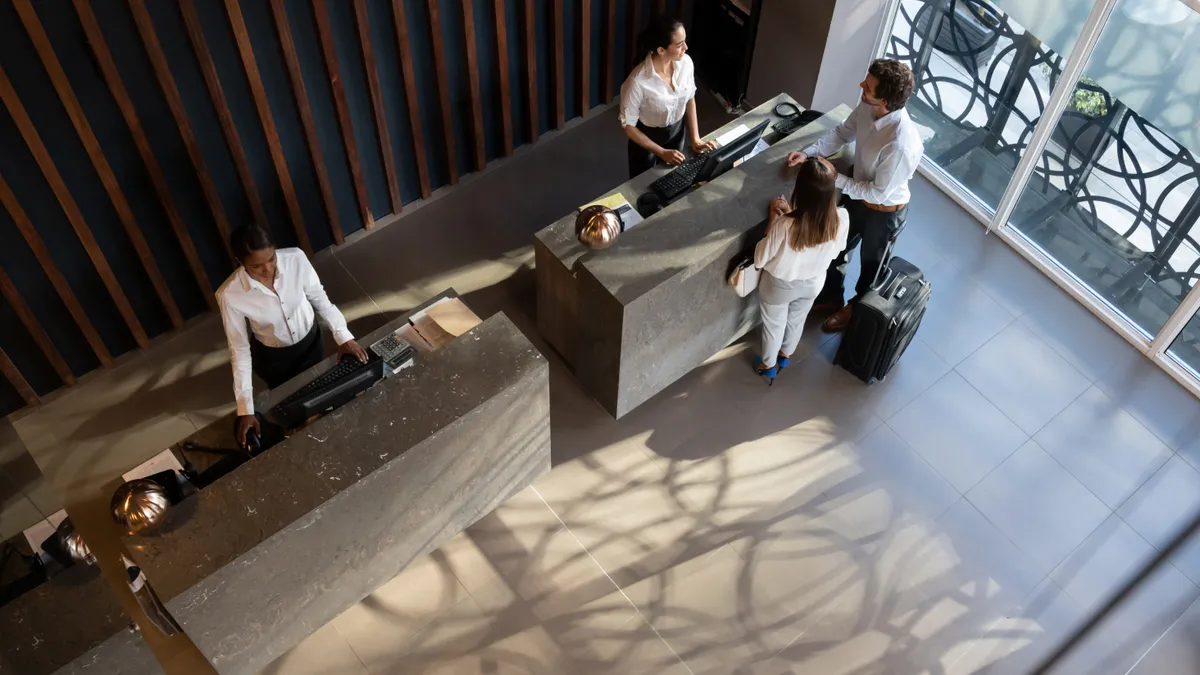President Donald Trump’s tariffs are slated to impact the cost of many goods, and food and beverage products are no exception. For hospitality industry professionals, especially those with crossover in the F&B sectors, this causes concern.
How will hotel restaurants source increasingly expensive food and beverage products without upcharging the guest? Will there even be as many guests to dine or drink with consumer confidence at a historic low? These are the questions hospitality pros are mulling over.
As economic uncertainty mounts, Hotel Dive spoke with food and beverage industry leaders to gauge how tariffs will impact hotel restaurant operations and sales — and how the complementary relationship between travel and F&B could cause headaches for hotels.
Tariffs push F&B costs higher
Tariffs on food and beverage products will undoubtedly raise prices for the American consumer, including hotel guests dining at on-property restaurants, experts shared.
“Many restaurant operators source as many domestic ingredients as they can, but it’s simply not possible for U.S. farmers and ranchers to produce the volumes needed to support consumer demand.”

Michelle Korsmo
National Restaurant Association President and CEO
“The biggest concerns for restaurant operators are that tariffs will hike food and packaging costs and add uncertainty to managing availability, while pushing prices up for consumers,” National Restaurant Association President and CEO Michelle Korsmo told Hotel Dive.
U.S. restaurants — including those operated at hotels — rely on global, interconnected supply chains to source fresh, year-round ingredients, many of which can’t be grown or produced at the necessary quantities domestically, Korsmo shared.
“Many restaurant operators source as many domestic ingredients as they can, but it’s simply not possible for U.S. farmers and ranchers to produce the volumes needed to support consumer demand,” she said.
Any disruption to these supply chains by tariffs would increase restaurant operators’ costs, per Korsmo. In an NRA letter sent to Trump, dated Feb. 18 and obtained and reviewed by Hotel Dive, Korsmo stated that a 25% tariff on food and beverage products from Mexico and Canada, for example, would cost America’s restaurants $12.1 billion.
No more than a month later, a 25% import tariff on goods from Mexico and Canada took effect on March 4, according to The Wall Street Journal. Canada responded by placing its own tariffs on $21 billion in U.S. imports, per the report.
The Trump administration later suspended those tariffs on goods eligible for duty-free trade under the U.S.-Mexico-Canada agreement.
While most agricultural products, food and alcohol qualify for a suspension of tariffs under USMCA, restaurant operators should check their own supply chains for specific products that may still be impacted, the Wisconsin Restaurant Association advised in a March statement following the tariff implementation.
Korsmo provided similar guidance, telling Hotel Dive the first line of operator response should be to “talk with their suppliers about where their products are sourced from and how new or increased tariffs will impact availability and cost.”
U.S. imports, including food and beverage products, from all countries are subject to a baseline 10% tariff as of April 5, according to Supply Chain Dive.
Due to Trump’s tariffs, food prices are expected to rise 2.6% in the short term and stay 2.8% higher in the long run, according to an April study by The Budget Lab at Yale University.
If food prices rise and restaurants’ costs increase, menu prices will follow, Korsmo said.
Fewer tourists signal trouble for F&B
Brian Rosen, CEO of beverage private equity firm InvestBev, told Hotel Dive that a larger problem for U.S. hotels and restaurants than increasing F&B costs will be a significant decrease in guests, as traveler sentiment dips following recent government actions.
“The price at the hotel bar is irrelevant if there’s no one there to drink,” he said, adding, “there’s a strong anti-American sentiment happening from a tourism standpoint, and because of the tariffs and political unrest, people are fearful to travel here.”
Last month, the World Travel & Tourism Council reported that the U.S. is on track to lose $12.5 billion in international visitor spending in 2025 due to recent government actions. And hotel CEOs noted changes to travel demand and booking behavior in Q1 earnings. Las Vegas operators MGM Resorts and Caesars Entertainment, specifically, reported seeing fewer Canadian leisure travelers in the quarter.
Less-obvious impacts could be felt by hotels if adjacent industries, like the food and beverage sectors, begin to struggle because of a lack of travelers, according to Rosen, noting the delicate ecosystem between travel, hotels and F&B.
For example, hotel bars selling fewer beverages could result in a surplus, ultimately impacting brands’ manufacturing and distribution strategies, Rosen explained. “It creates a kind of a recession environment within the category — and that’s all from one less person going to the bar,” he said, adding that decreased tourism impacts a beverage brand at every touch point.
So what will happen in the year ahead as industries grapple with the near-term impacts of tariffs? Rosen said it will get worse before it gets better.
Rosen predicts that public hospitality companies will report disappointing earnings results in the third and fourth quarters of this year if the summer travel season — usually the peak time for vacationers — does not perform as expected. Then, “there will be too many loud voices pushing on the administration to back off” and it will “force the administration to change policy.”
“There’s going to be too much political collateral damage to keep tariffs at this level,” Rosen said. “Once that translates to poll numbers, I think you’ll see a pullback.”
Hotel companies including Marriott International, Hyatt Hotels, Choice Hotels International and Wyndham Hotels & Resorts downgraded their 2025 RevPAR guidance in Q1 earnings reports, citing ongoing economic uncertainty.
CoStar and Tourism Economics, meanwhile, downgraded their 2025 and 2026 growth projections for U.S. hotel top-line performance metrics earlier this month amid “elevated macroeconomic concerns.”




















